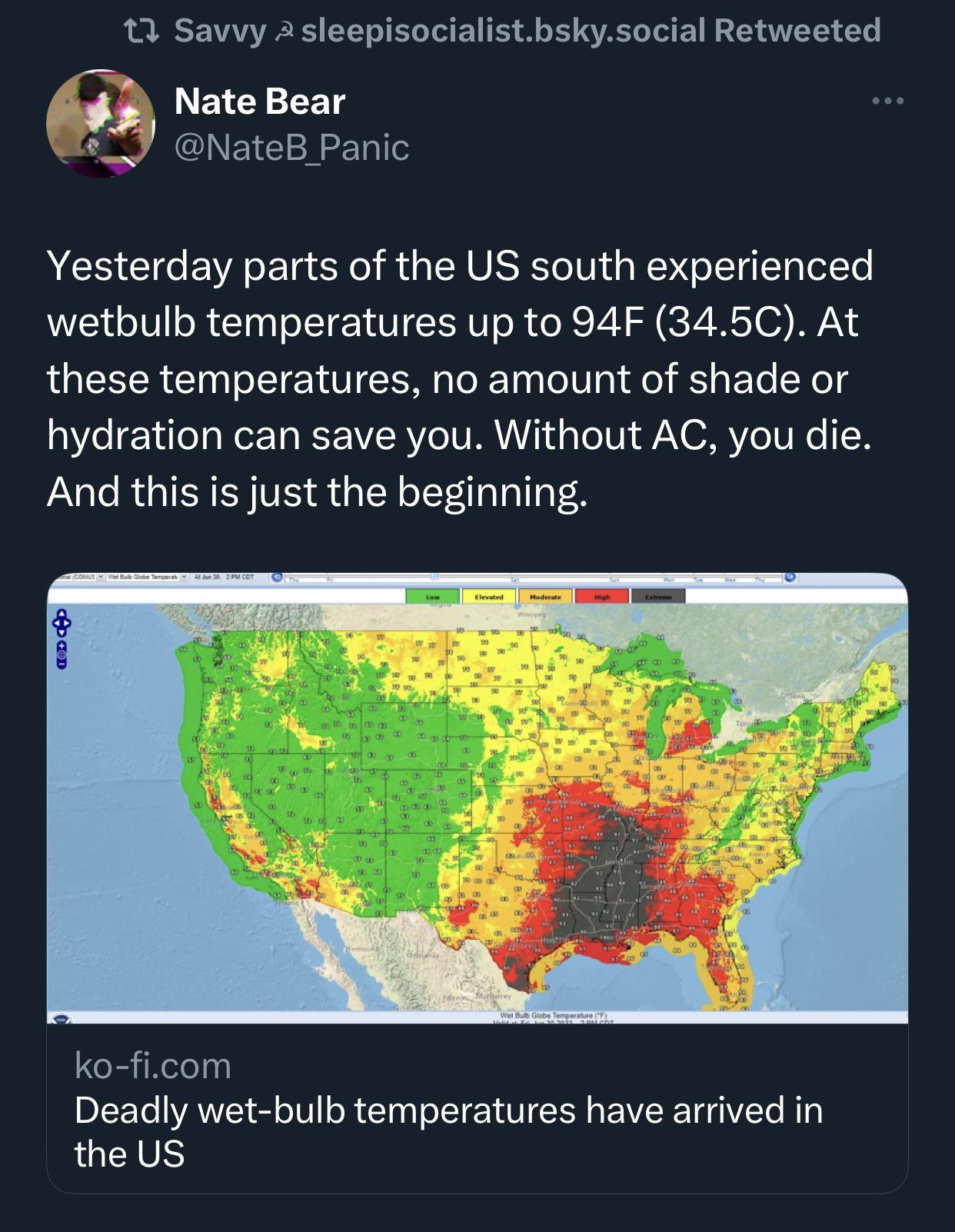this post was submitted on 02 Jul 2023
38 points (97.5% liked)
Collapse
3236 readers
10 users here now
We have moved to https://lemm.ee/c/collapse -- please adjust your subscriptions
This is the place for discussing the potential collapse of modern civilization and the environment.
Collapse, in this context, refers to the significant loss of an established level or complexity towards a much simpler state. It can occur differently within many areas, orderly or chaotically, and be willing or unwilling. It does not necessarily imply human extinction or a singular, global event. Although, the longer the duration, the more it resembles a ‘decline’ instead of collapse.
RULES
1 - Remember the human
2 - Link posts should come from a reputable source
3 - All opinions are allowed but discussion must be in good faith.
4 - No low effort posts.
Related lemmys:
- /c/green
- /c/antreefa
- /c/gardening
- /c/nativeplantgardening@mander.xyz
- /c/eco_socialism@lemmygrad.ml
- c/collapse@sopuli.xyz
- /c/biology
- /c/criseciv
- /c/eco
founded 4 years ago
MODERATORS
you are viewing a single comment's thread
view the rest of the comments
view the rest of the comments

Per wikipedia: The wet-bulb temperature is the temperature read by a thermometer covered in water-soaked cloth over which air is passed. At 100% relative humidity, the wet-bulb temperature is equal to the air temperature; at lower humidity the wet-bulb temperature is lower than dry-bulb temperature because of evaporative cooling.
Living organisms can survive only within a certain temperature range. When the ambient temperature is excessive, many animals cool themselves to below ambient temperature by evaporative cooling (sweat in humans and horses, saliva and water in dogs and other mammals); this helps to prevent potentially fatal hyperthermia due to heat stress. The effectiveness of evaporative cooling depends upon humidity; wet-bulb temperature, or more complex calculated quantities such as wet-bulb globe temperature (WBGT) which also takes account of solar radiation, give a useful indication of the degree of heat stress, and are used by several agencies as the basis for heat stress prevention guidelines.
A sustained wet-bulb temperature exceeding 35 °C (95 °F) is likely to be fatal even to fit and healthy people, unclothed in the shade next to a fan; at this temperature human bodies switch from shedding heat to the environment, to gaining heat from it.[9] In practice, such ideal conditions for humans to cool themselves will not always exist – hence the high fatality levels in the 2003 European and 2010 Russian heat waves, which saw wet-bulb temperatures no greater than 28 °C.